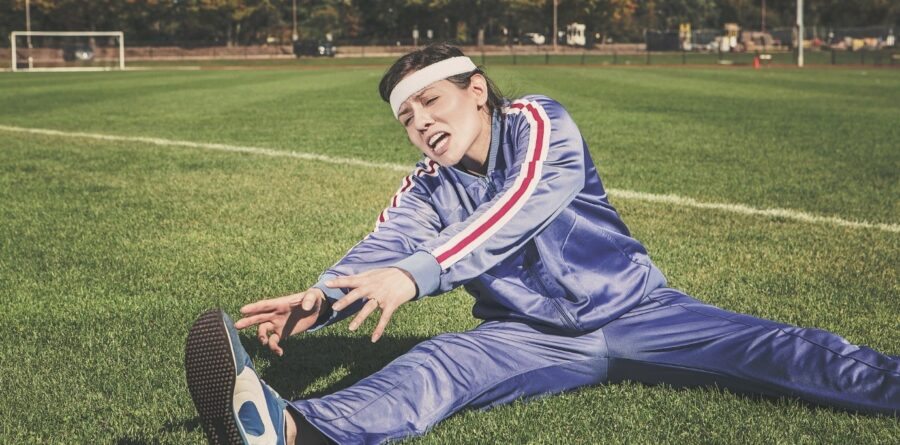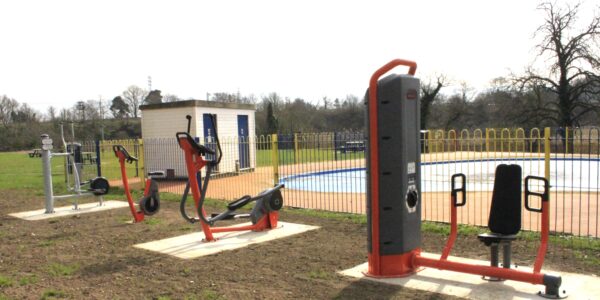Eat more, move less!
22/06/2020 - Happy People Solutions

Natasha Hodge, Nutritional Advisor, dispels the myth that exercise alone leads to weight loss and good health.
Gyms are on the verge of reopening, and during lockdown there have been a lot of people increasing their exercise levels by walking, running and cycling.
There have also been plenty of people who have decided that eating cake and watching Netflix is a better way to spend their time.
You may have been in either, or both of these camps to cope with a very strange and unsettling time.
For all types of people, the ingrained message we have been taught ad infinitum is that eat less, move more, will give us the body of our dreams. So, the exercisers may feel smug from moving more, and the cake eaters may feel guilty for not eating less.
But did you know that the exercisers are more likely to feel hungry and actually eat more as a result of their exercising? In fact, they will feel that they’ve earned the cake! Many will find that exercising does not lead to weight loss if they are still eating the foods that caused them to gain weight in the first place.
And the cake eaters will be unable to find the motivation to want to move due to the sugar leading their brains to reserve energy, as critical nutritional requirements have not been met. Nothing to do with motivation, just biology.
The mantra eat less move more includes another myth, to eat low fat foods, the idea being that your calorie intake will decrease and fulfil the eating less part. But none of this takes into account the biology of humans (although they’ll tell you it’s the law of thermodynamics).
Most health issues are caused by high blood sugar levels and vitamin and mineral deficiencies due to the standard British diet, and exercise will not reverse that.
A great example of exercise not saving you from bad food choices is Sir Steve Redgrave. In 1997 the Olympic rowing champion was diagnosed with Type 2 diabetes (where glucose can no longer be metabolised), at the peak of his fitness. He was training 4 or 5 times a day and eating approx. 7000 calories to compensate. But in his own words, most of that was sugar in one form or another. On a daily basis he would start with a hefty four Weetabix for breakfast. Between the first two sessions on the Thames, he would down a bowl of porridge, liberally dressed with sugar, or scrambled eggs on toast and a large jug of fruit juice.
Refuelling between the afternoon sessions usually meant soup, followed by a large pasta dish, pudding and another flagon of juice. Back home to toast or malted loaf – even if on the way he may have stopped for petrol and picked up a chocolate bar, a packet of wine gums and a bag of doughnuts to keep his blood sugar levels up.
For the main meal of the day, spaghetti bolognese would ideally be followed by rice pudding or apple pie and ice cream and a bowl of cereal at bedtime. To this day he copes with his diabetes by eating similar foods and injecting himself with insulin. *As a side note I have clients who have eliminated high sugar foods and within 2 weeks have reduced their insulin medication by 75%. It’s the food Steve!
If you are not an Olympic athlete, then rather than diabetes being your main concern when eating similar foods, it may be weight gain as the excess sugars in the carbohydrates will be stored as fat.
And speaking of fat, back to the low-fat food prescribed, these are more likely to be processed and lead to fat storage! This is because these products are more likely to be higher in sugar to compensate for the lack of flavour once the fat has been removed. If they contain sweeteners your blood sugar can also spike as your brain doesn’t know the difference between chemical and real sugar. On top of all that, processed food of any kind is not properly recognised by your body. Its chemicals masquerading as food and your body can tell the difference.
I have found with all my clients that as they eliminate processed foods and reduce carbohydrate and sugar intake their bodies find its ideal weight. The fat is burned without the need for exercise. The need isn’t there, but the inclination is.
If you concentrate on eating full fat meat, fish, dairy and veg, your body will get all it needs. Once it is fuelled correctly your brain will send out the signal that you need to expend energy and you will want to move more than ever
If you want to hit the gym, walk, run or cycle you can. Or you might just want to dance, garden, wash your car, gravel your driveway (just me?) or anything else that you like to do. Creating a win-win situation.
Movement is critical for strength, both physical and mental, but treat it as the icing on the low sugar cake.
And for those of you that still want to eat cake occasionally, but without a high sugar/carbohydrate ingredient, to correctly fuel body and mind, here is the link to my recipe for No Flour Brownies:

If you have a food and health question for Natasha please email her natasha@wideeyednutrition.com.
All articles on this news site are submitted by registered contributors of SuffolkWire. Find out how to subscribe and submit your stories here »



